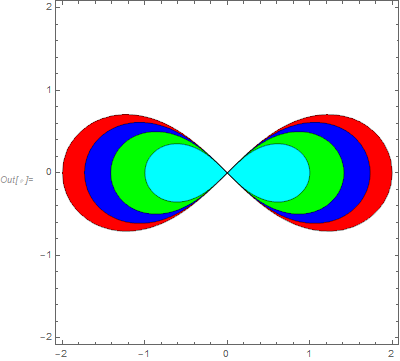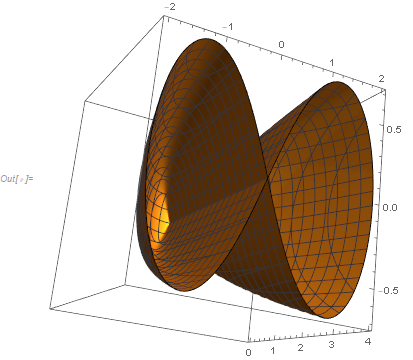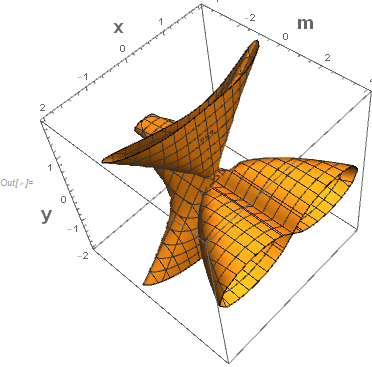If you can tolerate solving for $1/m$ rather than $m$ (as $m=0$ doesn't given you real numbers), you could use the following:
ContourPlot[(x^2 - y^2)/(x^2 + y^2)^2, {x, -2, 2}, {y, -2, 2},
Contours -> {1, 1/2, 1/3, 1/4}, PlotRange -> All,
ContourShading -> {White, Red, Blue, Green, Cyan}]
Maybe a more interesting display might be with ContourPlot3D which also allows your actual form of $f(x,y,c)=0$:
ContourPlot3D[(x^2 + y^2)^2 - m (x^2 - y^2) == 0, {x, -2, 2}, {y, -2, 2}, {m, 0, 4},
PlotRange -> All, PlotPoints -> 100]
For your more complex example, I think it becomes more important to consider ContourPlot3D:



